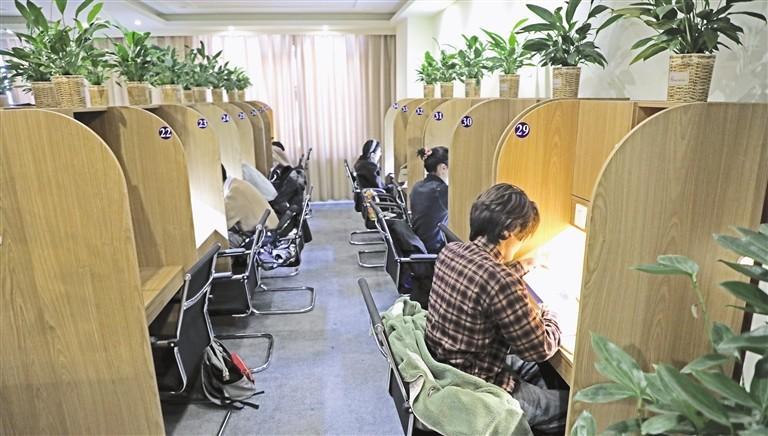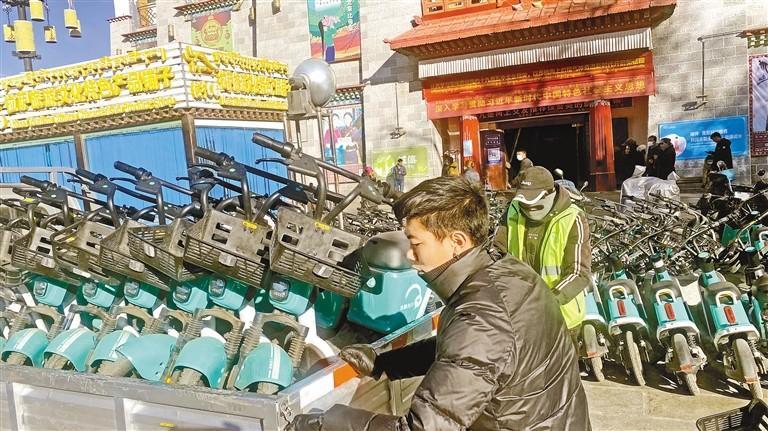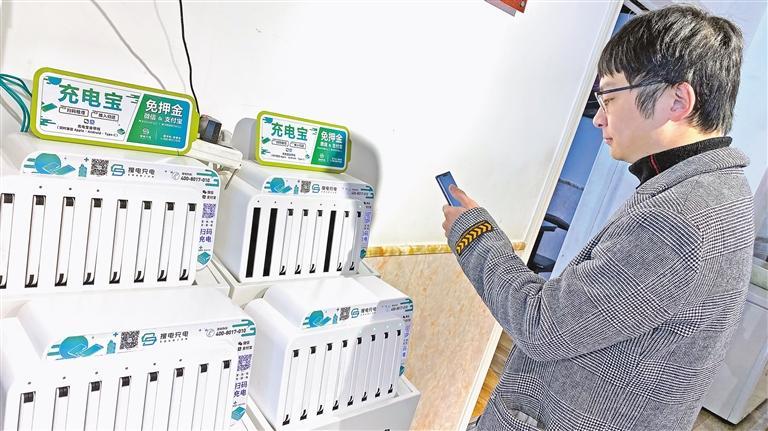By Liu Fang, Zhu Shan Source:China Tibet News 2021-01-29

Photo shows Lhasa citizens studying at the shared study room. [China Tibet News/Huang Zhiwu,Kelzang Lhundrup]

Photo shows workers changing batteries of shared electric bikes. [China Tibet News/Huang Zhiwu,Kelzang Lhundrup]

Photo shows a citizen using shared power banks at a restaurant. [China Tibet News/Huang Zhiwu,Kelzang Lhundrup]
Sharing economy is not in the future but is happening now in Lhasa, capital of southwest China's Tibet Autonomous Region. Shared e-bikes, shared power banks, shared massaging armchairs, and shared study rooms bring changes to our life.
Shared bikes represent convenience, which spread smart-commuting to the cities. Currently, Xunchi, an electric bike-sharing company, has put over 10,000 e-bikes on the streets of Lhasa, capital of southwest China’s Tibet Autonomous Region, and constructed more than 1,000 designated bike parking areas. They are mostly available in major public venues like communities, shopping malls and companies. With a mobile GPS navigation app, workers of Xunchi could locate those bikes and charge them. "There was a shortage of shared e-bikes near Wanda Plaza. To meet the increasing demand, more e-bikes have been put there. It makes traveling more efficient," says Mr. Li, a citizen of Lhasa city.
In addition to shared e-bikes, there are shared power banks. In Lhasa, shared power bank devices can be seen in public venues like shopping malls and café. With reasonable price, it enables users to rent power banks in one place and return them elsewhere. Users can charge their phones after paying by scanning a barcode.
The development of sharing economy also creates jobs. For instance, more than 100 workers are employed by Xunchi. Most of them are local citizens.
Copyright © Xizang Daily & China Xizang News All rights reserved
Reproduction in whole or in part without permissions prohibited
Index Code: 藏 ICP 备 05000021 号
Producer: Xizang Daily International Communication Center